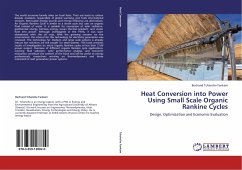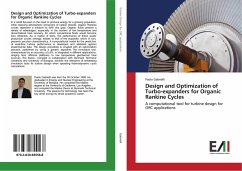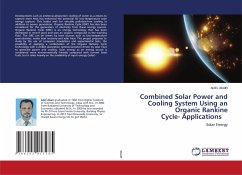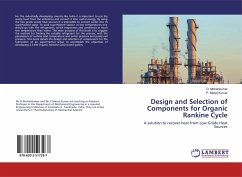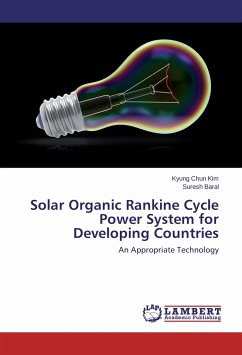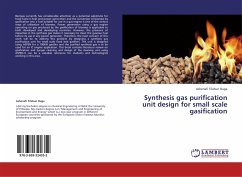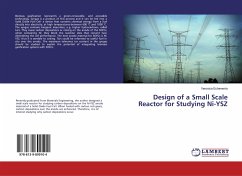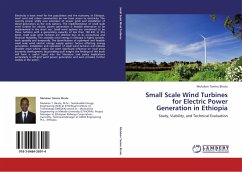The world economy heavily relies on fossil fuels. Their use leads to carbon dioxide emissions responsible of global warming and fuels international tensions. Renewable energy sources and energy efficiency are alternatives. An Organic Rankine Cycle is similar to a steam cycle but uses an organic fluid instead of water. It is suitable for conversion of solar radiation, geothermal energy, biomass energy, ocean thermal gradient, and waste heat into power. Although investigated in the 1970s, it was soon abandoned after the oil crisis. With the growing concern on the environment, the interest for this technology for electricity generation was renewed. The technology for medium and large scale systems is already mature but solutions are still sought for small systems. This book presents results of investigation on micro organic Rankine cycles of less than 2 kW power output. Overview of different organic Rankine cycle applications, working fluid selection, cycle performance analysis, andeconomic evaluation constitute the content of the book and will be useful to energy professionals, researchers working on thermodynamics and those interested in next generation power systems.
Bitte wählen Sie Ihr Anliegen aus.
Rechnungen
Retourenschein anfordern
Bestellstatus
Storno

